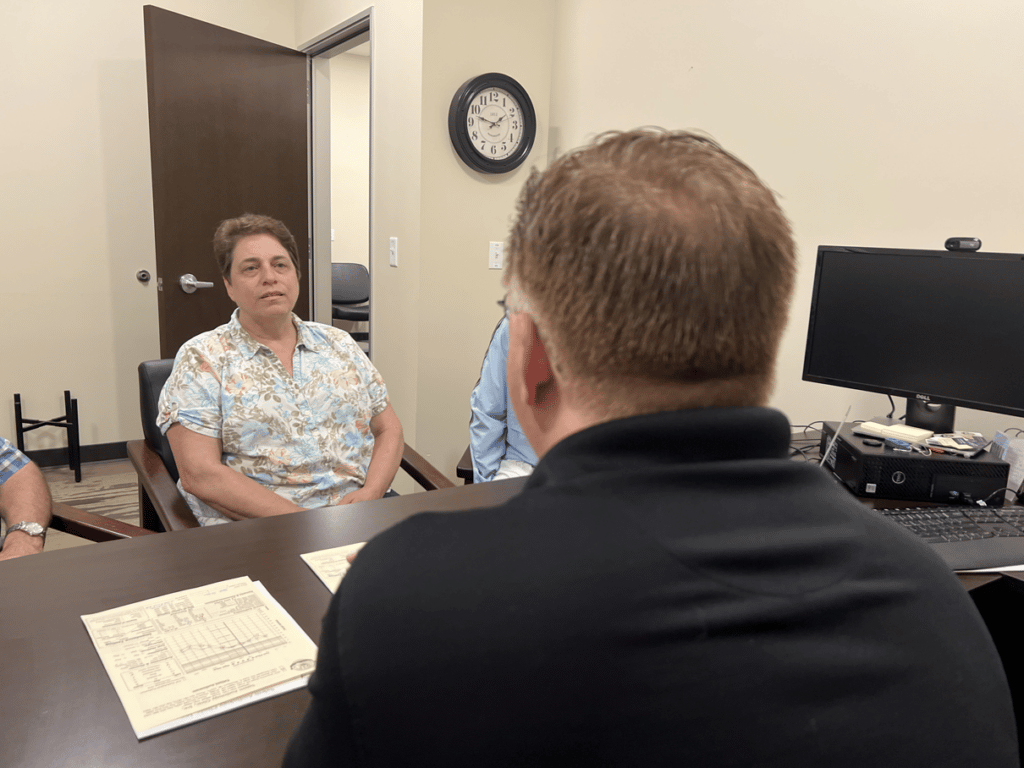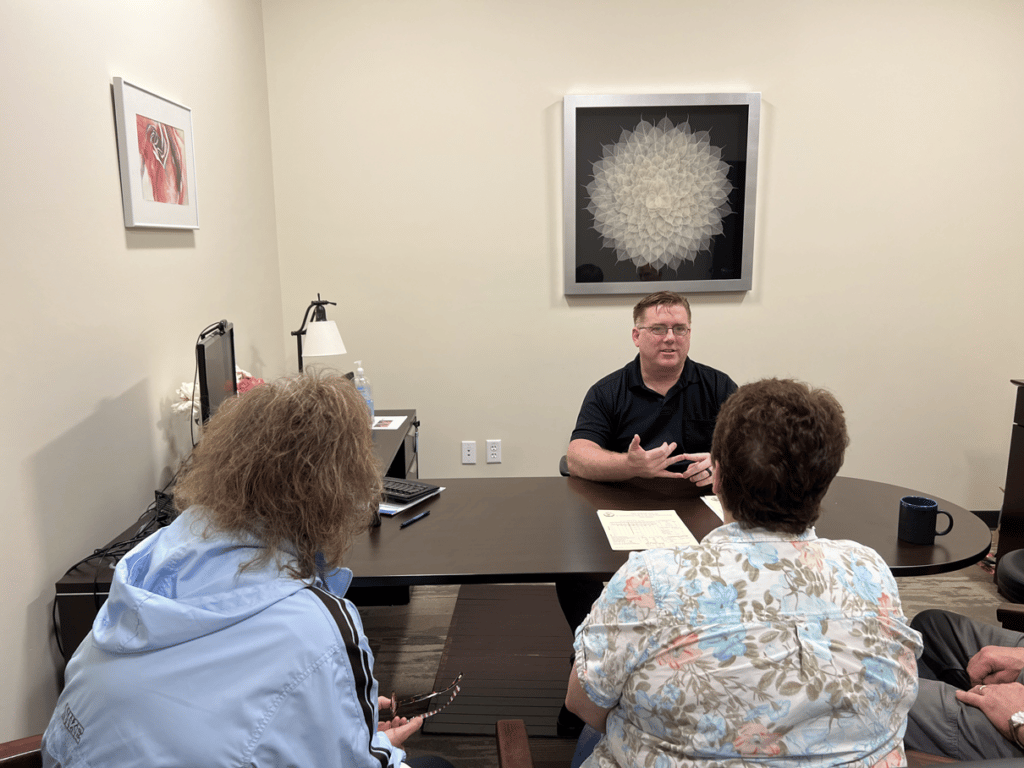
Preparing for a hearing test won’t require any studying. Instead, it’s more about thinking through your symptoms and ensuring you don’t forget anything. Prepping for your hearing test is about getting the most out of your time with us.
Here are five easy ways to prepare yourself for your hearing test!
List your symptoms (and when they occur)
Hearing loss doesn’t personify the same for everyone. Some symptoms may be more noticeable than others. Therefore, before your appointment, it’s a good idea to jot down a few notes on when your hearing loss is most pronounced. You can write things like:
- Do you find it difficult to hear the television? How loud is the volume? Do you have difficulties hearing at specific times of the day?
- Is talking on the phone difficult? Please keep track of times when it’s more challenging to hear people than usual.
- Do you find it hard to stay engaged during work meetings? When throughout the day is this most apparent?
- Did you have a problem making out a conversation while eating out in a crowded restaurant? Does that happen often?
This type of information that’s beneficial when speaking with your Audiologist. If you can, note the times and days these instances occurred. If you do not, be sure to note that they did happen.

Review your medical history
Writing down your medical history before you come in for your assessment is another great way to help speed up the post-hearing-test conversation. Include recent medical incidents and also minor ones. You should note things such as:
- Any recent surgeries that you have undergone.
- Any medical devices you currently use.
- Medication allergies and interactions.
- Sickness or diseases you’ve experienced.
- Medications you’re currently taking.
Talk to your insurance beforehand.
It can be complicated to sort out what amount your visit insurance covers. Some plans may cover your hearing exam, specifically if it’s part of a medical condition. But not all programs will. You will be more confident at your consultation if you get this all figured out coming in. We can also help you try and find the information for you most times; however, speaking directly with your insurance provider will give your the most information needed. Nobody likes surprises when it comes to out-of-pocket costs. So make sure to take a few minutes and talk to your insurance before coming to your appointment. We have several options to ensure you get the care you need, even if your insurance does not cover some or all of the costs. So it’s always a good idea to talk to our billing department and ask about available payment and credit options.
Do some research
How much do you know about hearing aids? It’s an appropriate question because you don’t want to make any decisions based on what you think you know. We offer a Shoppers Guide to Hearing Aids, along with other free information you can find on our website and in our clinic. But, it’s always best to take some onus and research to be as best equipped as possible during your time with your Audiologist. Understanding what types of hearing devices are available and your preferences can help speed up the process and help you get better information on finding the right solution for your individual need and lifestyle.

Bring a friend or family member.
Bringing a friend or loved one to your hearing appointment isn’t entirely necessary. However, it can provide considerable advantages. Amongst the most notable benefits are as follows:
You don’t always know when your hearing isn’t performing correctly, but it’s a safe bet your spouse or partner does! We will have even more information to help make an accurate diagnosis or exam when you bring someone with you. A friend or family member is also a great source of support during what is likely a confusing and upsetting time in your life.
Besides, hearing loss isn’t just your problem! It affects the whole family, inevitably changing the nature of your relationships – and not always for the better. When you’re at your appointment, such information will be discussed. Having a dependable friend or family member with you can help you remember all that information when you get home.
With many medical diagnostics, it could be days or weeks before you get your diagnosis. But with a hearing exam, that’s not the case. Like the bubble-sheet tests fed through the scantron machine when you were in college, you get your results immediately.
And even better, we’ll walk you through your results and how you can improve your general hearing health. Maybe that’s a hearing aid, some changes to your behavior, or some ear protection. Either way, you’ll know it immediately.
So, you don’t have to cram for your hearing exam. But it is helpful, mainly for you, to be prepared.
